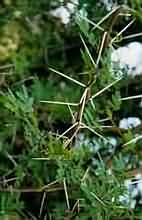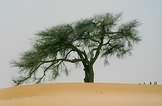






International Symposium on
Drylands Ecology and Human Security


Biodiversity Uses and Conservation in the Arab World Biodiversity or biological diversity is the totality of genes, species, and ecosystems, as well as the ecological complexes of which they are part. This includes diversity within species, between species and of ecosystems in combination with the cultural diversity (indigenous knowledge) in use, maintenance and exploitation due to anthropogenic activities. The loss of biodiversity often reduces the productivity of ecosystems, thereby shrinking the basis of sustainable livelihoods for billions of people, including a disproportionately large section of the poor. Furthermore it destabilizes ecosystems and weakens their ability to deal with natural disasters, such as droughts or human-caused stresses, such as desertification. Given our dependence on food crops, shelter, medicines, other biological resources or even just to maintain our cultural identity, the current accelerated pace of extinction poses a dramatic threat to our human well-being. Consequently, the global community has already adapted two comprehensive international conventions to protect the variety and complexity of life on Earth at all scales: The "Convention on Biological Biodiversity" (CBD) has the overall objective to develop national strategies for the conservation and sustainable use of our biological diversity. In addition and in harmony with the CBD, the International Treaty on Plant Genetic Resources for Food and Agriculture, aims at guaranteeing food security through the conservation, exchange and sustainable use of the world's plant genetic resources for food and agriculture, as well as the fair and equitable benefit sharing arising from its use. Both provide the institutional framework and an opportunity to bring the “ecosystem approach” together with the “sustainable livelihoods approach” to ensure development and poverty reduction. In the Arab world, biodiversity is an important part of natural capital - it can contribute to reduce vulnerability, increased food security, income and well being. In spite of that, our rich biological diversity base is facing many challenges. Among these are extinction, theft and non-sustainable uses, as well as the limitations to identification, characterization and documentation. The aim of this session is to: Topics of the session: Please send your abstracts and questions to |
|
|
|
Dr. Arif S. A. Al-Hammadi
Download your PDF version of this session here Download your PDF version of our “Call for Papers”
For further information about
|
© 2006 NDRD Imprint Disclaimer

